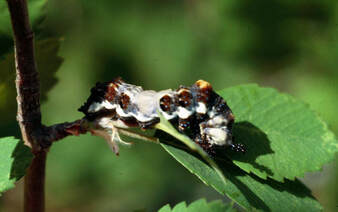 The ancient Egyptians and Sumerians used bark from willow trees to treat pain; Hippocrates wrote that both the willow’s leaves and it’s bark relieved fevers. The ancients didn’t know why the plant matter worked, but later researchers were able to isolate the key ingredient. By the mid-1800s salicylic acid was identified. In fact, salicylic acid can be found in the genus Spiraea, or meadowsweets, a group of about 100 species of shrubs in the family Rosaceae. These include jasmine, beans, peas, clover and certain grasses and trees.  These facts alone are a great jumping off point for a discussion to start your next chemistry, classification, or global civilizations lesson. But there are even more connections to be made between academics and this wonderful plant hormone. And August is the month to start thinking about them, firstly because going back to school may have you reaching for some aspirin, and secondly because it is also the month that the compound in aspirin was discovered! The Treatment Could Be Worse Than the Cure If administered to patients by itself, salicylic acid can cause nausea, vomiting, and coma! It wasn’t until August 10, 1897 that German chemist Felix Hoffmann created the compound acetylsalicylic acid, which had the anti-inflammatory properties of salicylic acid, but also buffered the effects of the acid on the stomach.  Hoffmann’s discovery helped alleviate his father’s rheumatism and positioned his employer, Bayer, to compete with other growing pharmaceutical concerns of the 19th century such as Merck, GlaxoSmithKline, Pfizer, Eli Lilly, and Squibb. (Economics and Health teachers could discuss the evolution of apothecaries into modern day drug companies.) Bayer sold acetylsalicylic acid in tablets called aspirin, a name derived from a combination of acetyl and Spiraea. A Bitter Pill Keeps Predators Away Interestingly, salicylic acid is used not just by people, but wildlife, as well. Viceroy caterpillars, which look like bird droppings, feed on trees which produce the herbivore deterring compound. Once the Viceroys metamorphose into butterflies, they are mimics, once again. Their orange and black markings resemble those of Monarch butterflies.  Monarch (L), Viceroy (R) Monarch (L), Viceroy (R) As butterflies themselves, the Viceroys still contain salicylic acid due to fact that they fed on willows while in the larval stage. This acid not only causes the Viceroy to taste bad but makes whatever eats it sick. These relationships are explored in A Thief in Pollinator Paradise, which can complement an ecology or evolution lesson. Aspirin: Wonder Drug, but Deadly for Some Aspirin is a potent medical treatment with uses beyond the common “school-days headache”. It can be used in treating cardiovascular conditions and cancer! It blocks the production of prostaglandins, which are hormone-like compounds which influence many reactions in the body. Aspirin stops mild inflammation and pain by blocking prostaglandins which cause them. However, prostaglandins function as part of the body’s way of dealing with injury and illness. Prostaglandins can both constrict and dilate blood vessels, open or close airways, contract or relax muscles, alleviate or cause pain. Aspirin does not differentiate what type of prostaglandin it is blocking. To aspirin, the only good prostaglandin is a dead prostaglandin.  While aspirin blocks prostaglandins that cause pain, clotting, narrowing of blood vessels and inflammation, it also blocks prostaglandins that protect the stomach lining. This can cause stomach bleeding. Nonsteroidal anti-inflammatory drugs, or NSAIDs like ibuprofen (Motrin, Advil), naproxen (Aleve), and Aspirin all can cause stomach irritation. Aspirin is the most toxic to the stomach, but also the most versatile pain reliever. But aspirin is not for everyone. Certain conditions make taking aspirin dangerous. There are several illnesses related to blood clotting factors and platelets which make taking aspirin ill-advised.  For example, lessons about czarist Russia often include teaching students about young Alexei Romanov, who had hemophilia. His imperial doctors likely gave him aspirin to treat the pain of his condition. This treatment would’ve made his bleeding disorder worse.  The mystic Grigori Rasputin told the Alexei’s mother to stop modern treatments and instead rely on spiritual healing. Alexei’s condition would have improved after he stopped taking aspirin. This may be one reason why Rasputin gained influence over the Royal Family. The Tsar ignored calls to remove Rasputin from the Romanov court, which eventually contributed to the Royal Family’s assassination.  Whether you find yourself teaching ecology, ancient civilizations, health, Russian history, or economics this September, take this August lesson under advisement: have a cup of willow bark tea to ward off that headache that may come on with the approaching school year.
0 Comments
Leave a Reply. |
AuthorGertrude Katz has spent over 30 years teaching K-12 public school students all major subjects. She has taught biology and education at the college level. The majority of her career has been spent instructing biology at the secondary level. Categories
All
|
 RSS Feed
RSS Feed